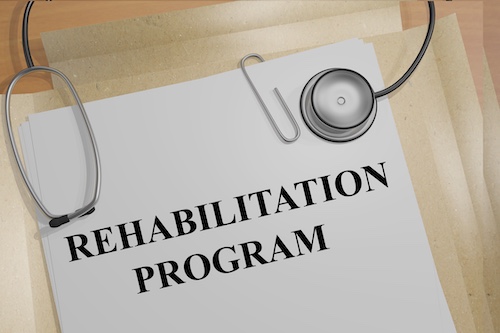How Long Is Rehab? Understanding Your Options for Treatment Duration
How long is rehab? The answer depends on individual needs, the severity of addiction, and mental health conditions. Whether it’s a 30, 60, or 90-day program, the time spent in rehab plays a key role in building a strong foundation for recovery. At Carolina Recovery in Durham and Raleigh, North Carolina, we offer a range of treatment options to support each stage of the recovery process.
In this blog, we’ll explain how long rehab takes, break down the differences between 30, 60, and 90-day programs, and show what to expect at each stage of treatment, including options available at our Raleigh rehab location.
Why Rehab Duration Matters: More Than Just Time
The length of rehab can significantly impact the success of addiction treatment. Choosing the right duration supports a more stable recovery process.
Longer Programs Improve Recovery Outcomes
Studies from the National Institute on Drug Abuse show that longer rehab stays often lead to better outcomes. A 90-day inpatient rehab or long term outpatient program gives more time to treat physical dependence and underlying mental health issues. This extended time helps patients form new habits and strengthen coping skills that support a substance free lifestyle.
Time Allows for Addressing Co-Occurring Disorders
Many addiction treatment programs include care for co-occurring mental health disorders. These include depression, anxiety, and PTSD. Treating both addiction and mental health disorders requires time. Longer treatment programs give space for full mental health treatment alongside addiction recovery.
Treatment Must Match Addiction Severity
The severity of a substance use disorder affects how long rehab should last. Someone with a long history of drug abuse may need 60 to 90 days of inpatient care or outpatient treatment. Shorter ones may be suitable for mild cases, but severe addictions usually require a longer treatment plan to prevent relapse.
Deeper Work Requires More Time
Rehab involves more than detox. Patients go through group therapy, individual counseling, family therapy, and support groups like Alcoholics Anonymous or Narcotics Anonymous. Each of these parts helps address emotional triggers, improve relationships, and build a healthy life. A longer rehab program allows for deeper progress in each area.
Aftercare Planning Needs Room to Develop
Effective substance abuse treatment includes aftercare. This phase prepares patients for outpatient rehab, sober living homes, and support groups. Longer treatment durations give more time for planning and connection to resources that support long term recovery.
Time Invested Supports Lasting Recovery
How long rehab lasts can significantly impact the results. Time spent in a structured environment reduces the chance of relapse. It gives individuals space to learn, practice, and prepare for life outside the treatment center. For many, a longer program is the difference between a short break from drugs and a lasting recovery.
The Core Program Options: 30, 60, and 90-Day Rehab Programs
Rehab programs vary in length to meet different needs. Each option provides a different level of support and structure based on the severity of addiction and mental health concerns.
30-Day Rehab Program
A 30-day rehab program offers a short-term, intensive start to addiction treatment. It includes detox, individual counseling, group therapy, and support groups like Alcoholics Anonymous. This option is often used for people with mild to moderate substance use disorders. It is also a starting point for those unsure if they need a longer commitment. Many addiction treatment programs use this time to stabilize the patient and create a plan for continued care, such as outpatient rehab or sober living homes.
60-Day Rehab Program
A 60-day program allows for more time to address both substance abuse and co occurring mental health issues. Inpatient rehab at this length includes a full schedule of therapy, family therapy sessions, and education on relapse prevention. This program works well for people with moderate to severe addictions or those who have tried outpatient programs without success. The extra time gives space for deeper work on emotional triggers and long term recovery planning.
90-Day Rehab Program
A 90-day rehab program provides the most time for treatment and recovery. It is often recommended for individuals with severe addictions, multiple relapses, or significant physical dependence. This type of program usually starts with inpatient care, followed by outpatient treatment or partial hospitalization. It includes comprehensive mental health treatment, individual counseling, and support groups. The extended time helps patients maintain sobriety and build a stable foundation for a healthy life. A 90-day stay often improves the chances of a successful recovery and a sustained, substance free lifestyle.
What Happens During Each Phase of Rehab?
Each phase of rehab plays a specific role in helping individuals recover from substance use and rebuild a healthy life.
Detox and Stabilization
Rehab often begins with detox. This phase helps the body remove drugs or alcohol safely under medical supervision. Detox can take a few days to a week depending on the substance and level of physical dependence. Medical staff monitor withdrawal symptoms and may provide medications to ease discomfort. Stabilization prepares the individual for the next steps in addiction treatment.
Therapy and Mental Health Treatment
After detox, treatment shifts to therapy. This includes individual counseling, group therapy, and family therapy. Sessions focus on the causes of substance abuse, emotional health, and behavior change. Many people in rehab also receive mental health treatment for conditions like depression or anxiety. Addressing these co occurring disorders supports long term recovery and prevents relapse.
Building Skills and Support
As the program continues, patients build skills for daily life. They learn how to manage stress, avoid triggers, and make healthy choices. Support groups such as Alcoholics Anonymous and Narcotics Anonymous become part of the routine. Peer support plays a key role in staying committed to a substance free lifestyle. Outpatient programs and intensive outpatient programs may also begin during this phase for those stepping down from inpatient care.
Aftercare and Planning for the Future
The final phase of rehab focuses on preparing for life after treatment. This includes aftercare planning, referrals to outpatient rehab, and connection to sober living homes. Patients work with their care team to create a treatment plan that includes continued therapy and support groups. This phase helps individuals maintain sobriety and stay engaged in their recovery journey.
Time Spent Builds a Strong Foundation
Each phase of the treatment process supports a specific part of recovery. The time spent in rehab is structured to help individuals understand their addiction, treat underlying mental health issues, and create a plan for lasting recovery. Whether someone attends a 30, 60, or 90-day rehab program, each phase builds on the one before it.
Factors That Determine How Long Rehab Lasts
The length of treatment depends on several personal and clinical factors. Understanding these helps match the individual to the right rehab program.
Severity of Addiction
The more severe the substance use disorder, the longer rehab may be needed. Individuals using multiple substances or with a long history of drug abuse often require 60 or 90-day programs. Shorter programs may not give enough time to treat physical dependence or prevent relapse. Severe addictions usually benefit from extended inpatient treatment followed by outpatient care.
Co Occurring Mental Health Disorders
Many people in addiction treatment also have mental health disorders like anxiety, depression, or trauma. These co occurring conditions increase the need for a longer rehab stay. Mental health treatment takes time and needs to be integrated into the overall recovery process. A longer program allows for proper evaluation, therapy, and medication management if needed.
Past Treatment History
A person who has relapsed after previous rehab may need a longer and more structured program. Each attempt at recovery gives insight into what works and what does not. If past outpatient programs failed, inpatient rehab with a longer stay may offer better results. The treatment plan should reflect lessons learned from earlier experiences.
Support System at Home
Support outside the treatment center matters. People with a strong network of family and friends may transition more easily to outpatient programs or sober living homes. Others may need a longer stay in a structured environment to build stability. Family therapy is often part of treatment to help rebuild trust and strengthen these support systems.
Type of Treatment Program
The type of program also affects how long rehab lasts. Inpatient treatment offers 24-hour care and is often longer. Outpatient rehab provides flexibility but may take more time overall due to a lower daily intensity. Partial hospitalization and intensive outpatient programs offer options between these two levels. The choice depends on medical needs, mental health concerns, and personal responsibilities.
Personal Readiness and Progress
Each person moves through rehab at their own pace. Progress in therapy, stability in mood, and ability to handle stress all influence length of treatment. Treatment centers like Carolina Recovery in Durham monitor each stage of recovery closely and adjust the plan when needed. The goal is always a successful recovery, not just completing a fixed number of days.
Start Your Recovery with Help That Lasts!
If you or a loved one is ready to take the next step, our team at Carolina Recovery is here to help. With personalized treatment plans, experienced staff, and multiple program lengths, our Durham and Raleigh rehab centers offer the structure and support needed for long-term recovery.
Contact us at (812) 408-8842 for a free consultation today!





